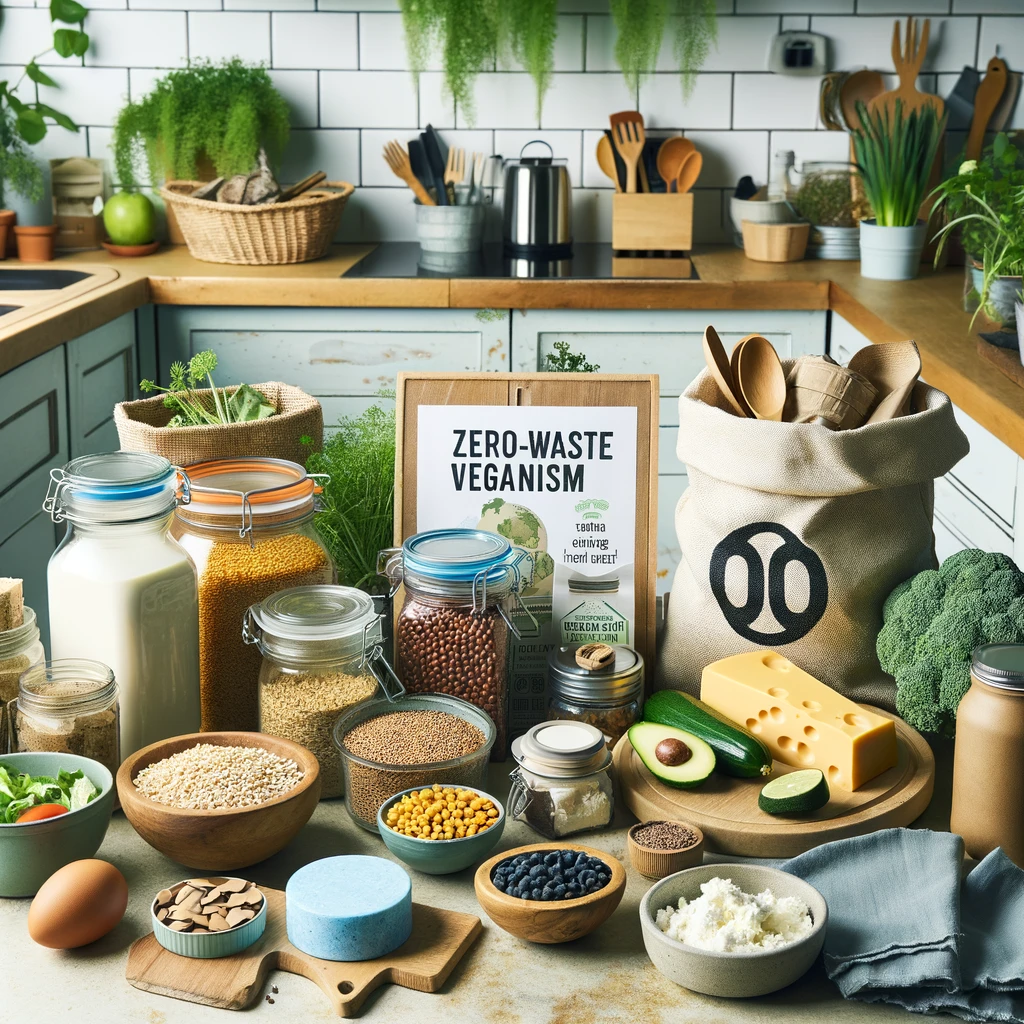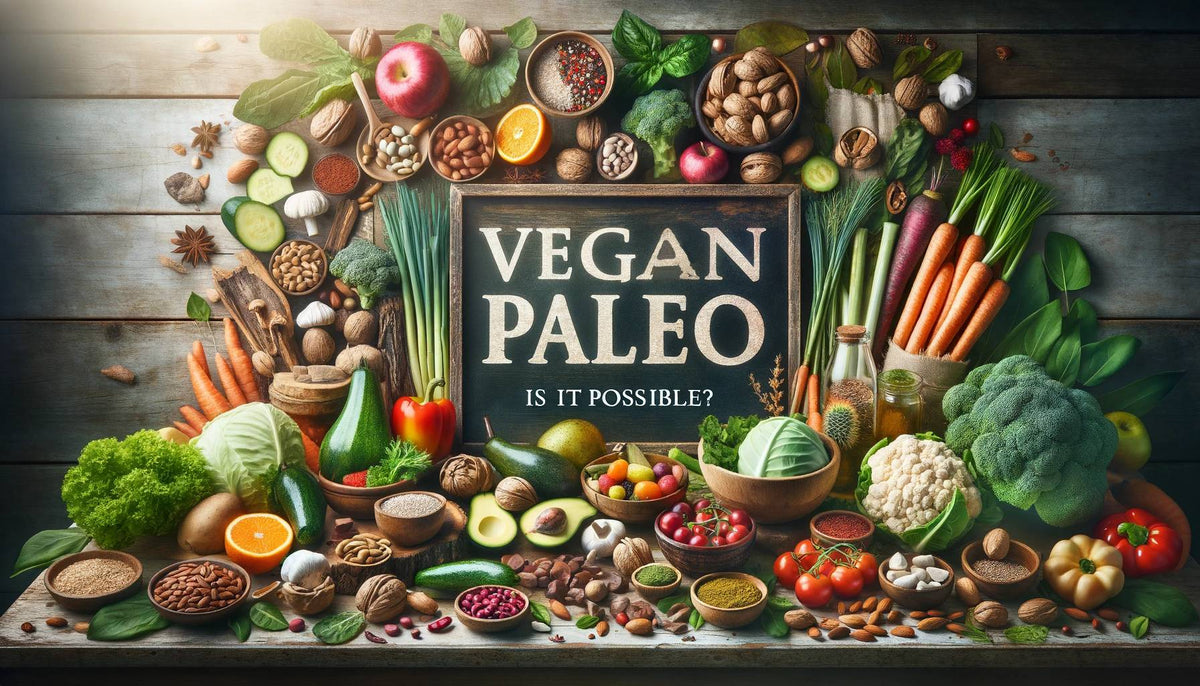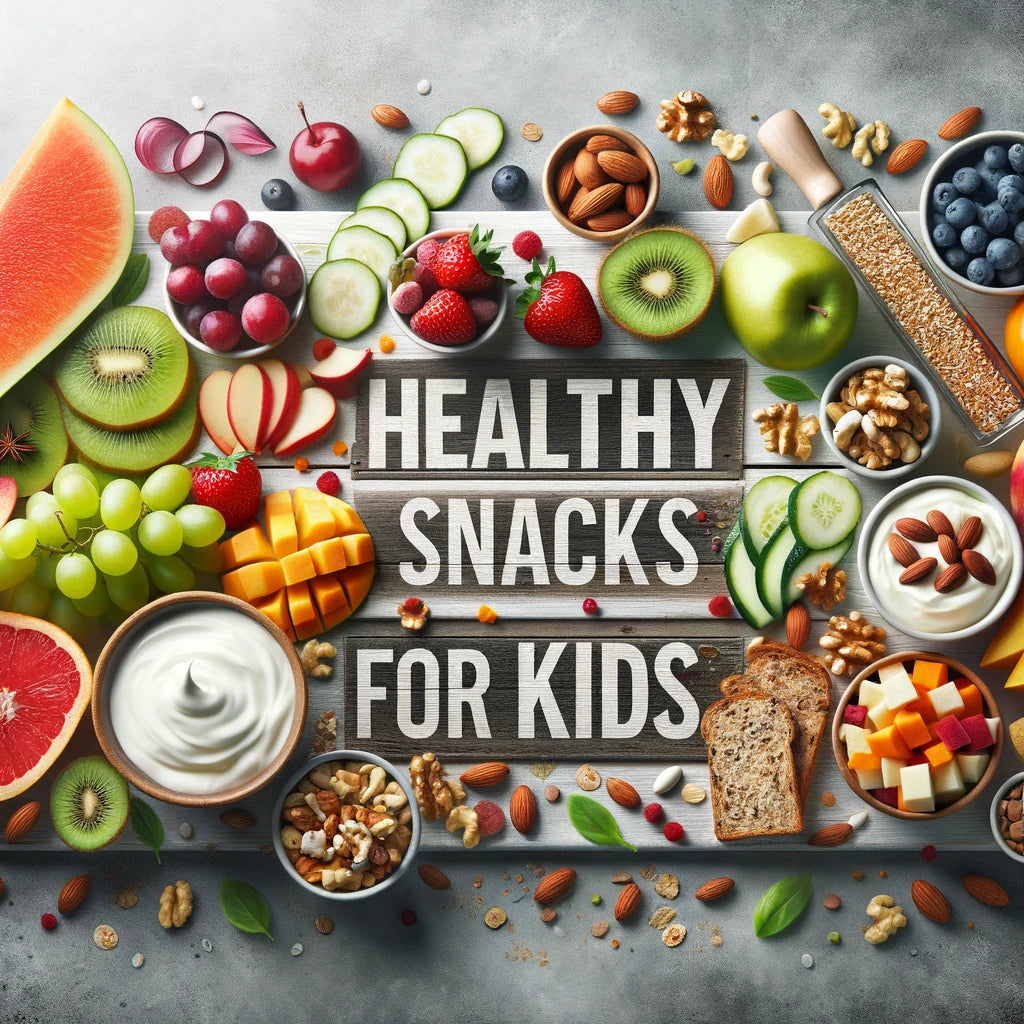Zero-Waste Veganism: Tips and Strategiesa
In a world increasingly burdened by pollution and waste, the Zero-Waste Veganism movement emerges as a beacon of sustainability and environmental responsibility. Coupled with veganism, it represents not just a dietary choice but a lifestyle dedicated to minimizing our ecological footprint. Zero-waste veganism is about making conscious choices that respect our planet and all its inhabitants, blending the compassion of Vegan products with the mindfulness of waste reduction.
Key Takeaways
- Zero-Waste Veganism is Sustainable: Combining veganism with zero-waste principles leads to a sustainable lifestyle that minimizes environmental impact.
- Bulk Buying Reduces Waste: Purchasing staples like grains, legumes, and vegan products in bulk significantly cuts down on packaging waste.
- DIY Staples Enhance Sustainability: Homemade vegan cheese, cashew butter, and vegan mayo are not only eco-friendly but also healthier and free from excessive packaging.
- Choose Reusables Over Disposables: Opting for reusable containers, utensils, and cloth bags over single-use plastics is crucial in reducing waste.
Understanding Zero-Waste Veganism
What is Zero Waste?
Zero waste is a philosophy that encourages the redesign of resource life cycles so that all products are reused, and no trash is sent to landfills, incinerators, or the ocean. It's about conserving resources, reducing pollution, and supporting a sustainable economy.
Why Zero Waste?
The zero-waste movement aims to tackle the global waste crisis head-on, promoting practices that ensure a healthier planet. By reducing our waste, we can lessen the demand for landfill space, decrease pollution, and conserve natural resources — making a significant impact on our environmental well-being.
The Foundation of Zero-Waste Veganism
Practical Tips for a Zero-Waste Vegan Lifestyle
Bulk Buying and Storage
One of the pillars of a zero-waste vegan lifestyle is the emphasis on bulk buying. Purchasing plant based foods like Vegan Cheese, plant based cheese , and Cashew Butter in bulk not only reduces packaging waste but also allows for better management of resources. Storing these staples in reusable containers keeps your pantry organized and your foods fresh.
- Benefits of Bulk Purchasing: Bulk buying minimizes packaging waste and often results in savings.
- Storage Solutions: Use glass jars and cloth bags to store bulk purchases, reducing the need for single-use plastics.
Sustainable Eating Habits
Adopting sustainable eating habits is crucial for zero-waste veganism. This involves choosing vegan food products that are locally sourced, seasonal, and minimally packaged.
- Local and Seasonal Produce: Supports local farmers and reduces transportation emissions.
- Meal Planning: Helps in buying only what you need, reducing food waste.
Reducing Single-Use Plastics
A significant aspect of zero-waste living is the reduction of single-use plastics. Opt for reusable alternatives for vegan butter , vegan mayo, and other Vegan products to significantly cut down on waste.
- Alternatives to Single-Use Plastics: Reusable bags, containers, and bottles.
- Eco-Friendly Packaging: Look for plant based products in biodegradable or recyclable packaging.
Composting and Food Waste Management
Composting organic waste is a cornerstone of zero-waste veganism. It not only reduces the amount of waste sent to landfills but also enriches the soil, promoting healthier plant growth.
- Basics of Composting: Easy steps to start composting at home.
- Minimizing Food Waste: Tips for using all parts of the food and reducing spoilage.

Zero-Waste Vegan Kitchen Essentials
Staples That are Easy to Make at Home
Creating vegan food products at home is not only fun but also a great way to reduce waste. Homemade vegan cheese, vegan butter , and Cashew Butter are not only delicious but also free from the excessive packaging found in store-bought versions. Here are a few staples you can easily make in your kitchen:
- Vegan Cheese: Nutritional yeast, nuts, and spices can create flavorful cheese alternatives.
- Cashew Butter: With just raw cashews and a food processor, you can make creamy butter.
- Vegan Mayo: A blend of oil, plant-based milk, and a bit of mustard or vinegar can whip up a delicious mayo.
Choosing Between Glass and Plastic
When it comes to packaging, the choice between glass and plastic can significantly impact your waste output. Glass is infinitely recyclable and doesn't leach chemicals into your food, making it a safer, more sustainable option for storing vegan products and plant-based foods.
Zero-Waste Kitchen Products I Use (And Those I Don’t)
Investing in durable, eco-friendly kitchen tools and avoiding unnecessary gadgets can greatly reduce your kitchen's waste. Essential items include:
- Reusable silicone baking mats.
- Stainless steel or bamboo cooking utensils.
- Glass or stainless steel storage containers.
Zero-Waste Lunches
Preparing zero-waste lunches is easy with a little planning. Use reusable containers to pack homemade vegan food products, like sandwiches made with fat-free butter or plant-based cheese, and snacks like fruits and nuts. Avoid single-use plastics by opting for stainless steel water bottles and cloth napkins.
NO Plastic Bottles
Emphasizing the importance of avoiding plastic bottles, consider using a high-quality water filter at home and carrying a stainless steel or glass water bottle. This not only reduces waste but also ensures you're drinking clean, safe water.
Reuse Old Clothes
Before discarding old clothes, think of creative ways to give them a second life. T-shirts can become cleaning rags, jeans can be patched or turned into bags, and sweaters can be upcycled into cozy pillow covers.
Bulk Purchases and Zero-Waste Strategies
What Vegan Ingredients I Buy in Bulk
Buying in bulk can significantly reduce packaging waste and is especially beneficial for vegan shop enthusiasts. Staples such as legumes, grains, nuts, and seeds are perfect for bulk buying. Here are a few items to consider:
- Legumes: Beans, lentils, and chickpeas are versatile and nutritious.
- Grains: Quinoa, rice, and oats offer a solid base for meals.
- Nuts and Seeds: Almonds, cashews, and flaxseeds are great for snacking and cooking.
Incorporating these strategies into your daily routine can significantly impact reducing waste and supporting a sustainable, vegan lifestyle. By focusing on homemade staples, choosing sustainable packaging, and making conscious choices about what and how we consume, we can all contribute to a healthier planet and a more ethical way of living.
Challenges and Solutions in Zero-Waste Veganism
Challenge: Accessibility and Convenience
Solution: Start small and focus on what's easily achievable in your area. Online vegan shops offer a wide range of plant-based products and vegan food products, many with eco-friendly packaging options.
Challenge: Initial Costs
Solution: Investing in reusable items like glass containers and bamboo utensils might seem pricey at first, but they save money in the long run. Buying vegan ingredients in bulk can also reduce costs significantly.
Challenge: Social Acceptance
Solution: Educating friends and family about the benefits of zero-waste and vegan lifestyles through delicious plant-based foods can help overcome skepticism and encourage more sustainable choices.
Challenge: Maintaining Variety and Nutrition
Solution: Diverse plant-based foods ensure a balanced diet. Vegan cheese, vegan butter, and cashew butter can add flavor and richness to meals, while cholesterol-free foods and fat-free butter contribute to a healthy diet.
Conclusion
Embracing zero-waste veganism is a rewarding journey towards sustainability and ethical living. By incorporating vegan products, plant-based cheese, and vegan mayo into our diets, we not only support animal welfare but also reduce our environmental impact. Challenges may arise, but with creativity and commitment, a zero-waste vegan lifestyle is both achievable and immensely fulfilling.
This guide aims to inspire and empower you to make choices that align with a sustainable and compassionate lifestyle. Every step towards zero-waste veganism is a step towards a healthier planet and a more ethical way of life.
Do you enjoy vegan food? We have a list of vegan restaurants in India to help you find delicious options in your area!










